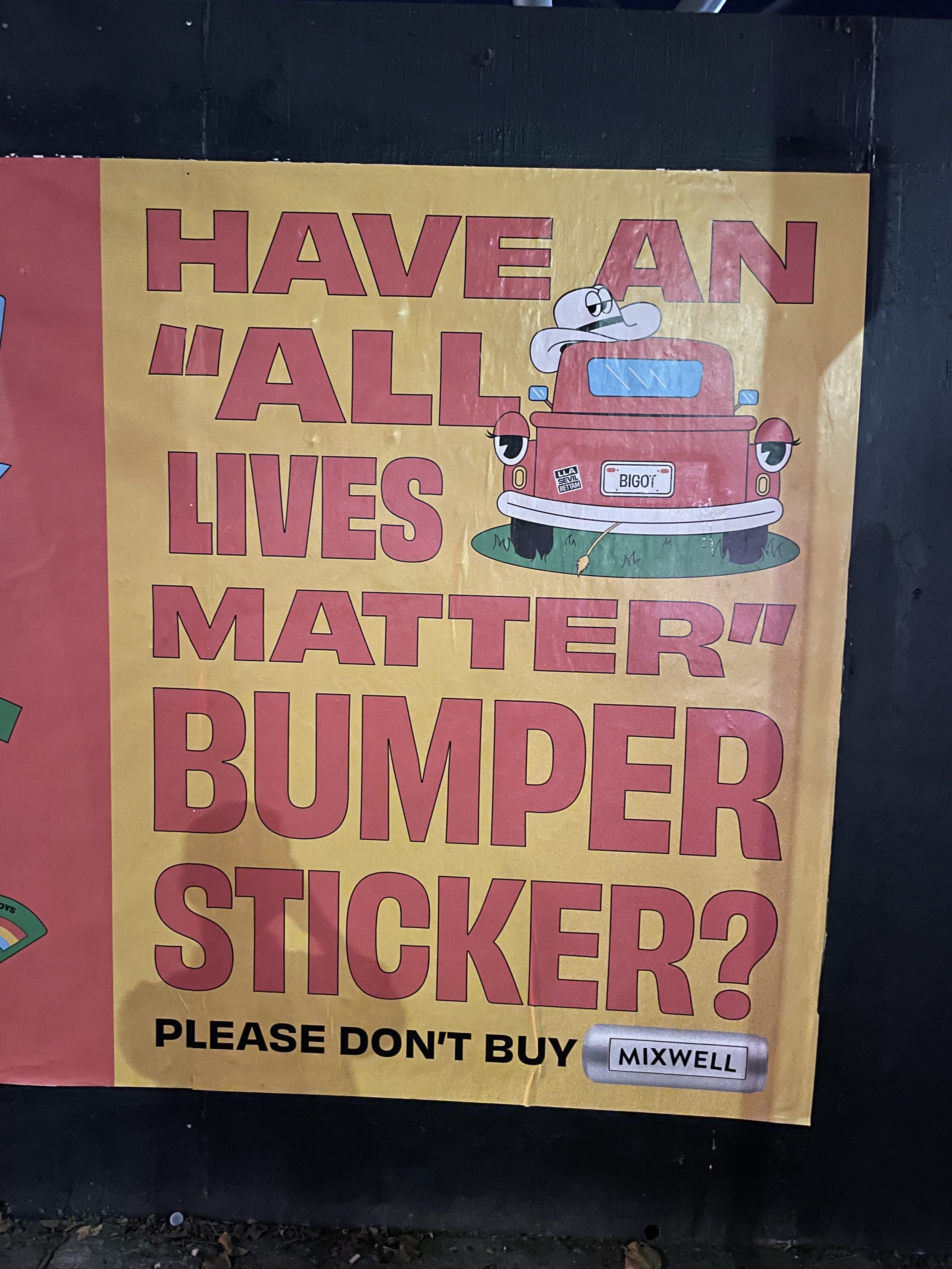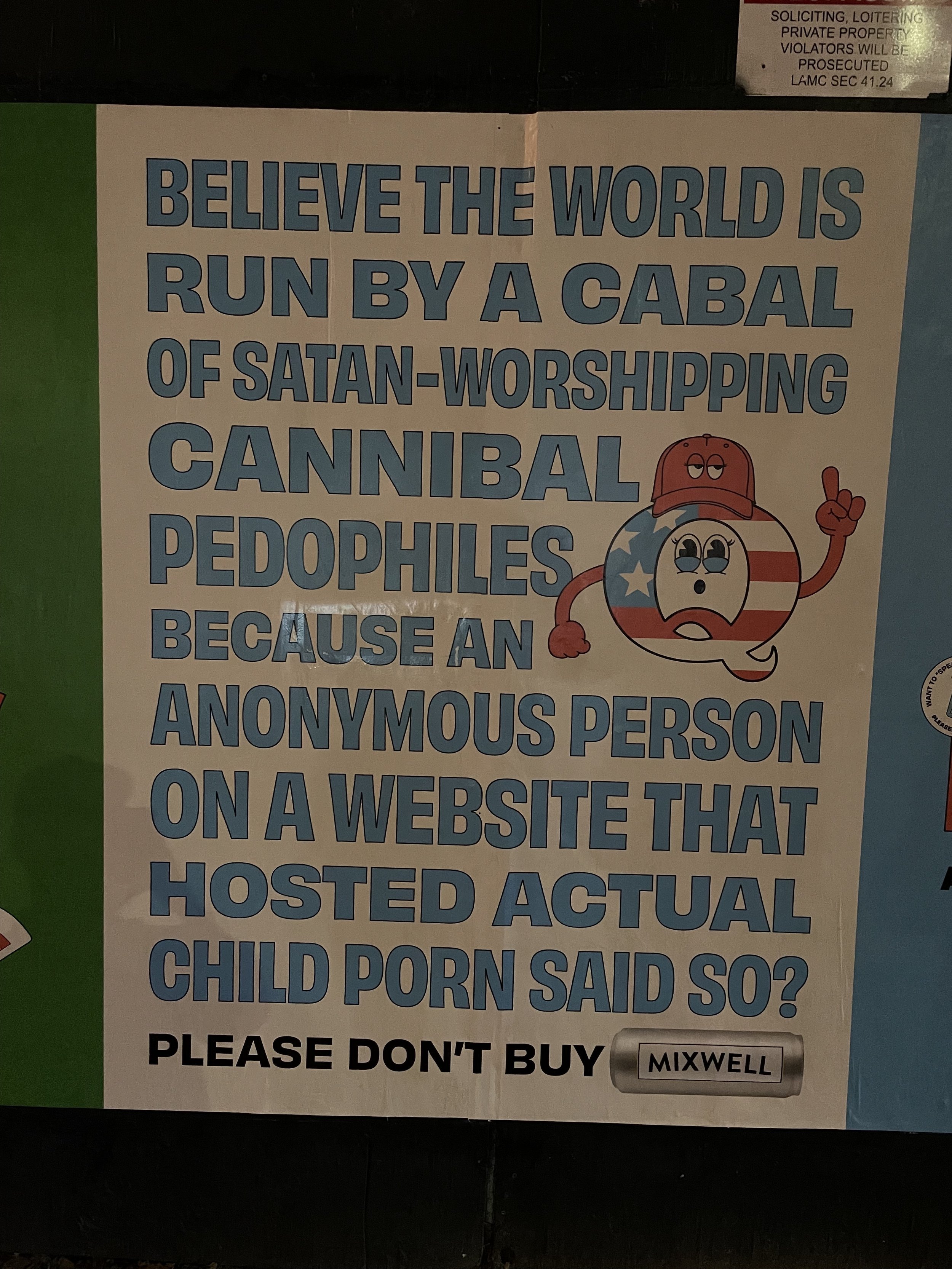Please Don’t Buy Mixwell - The unethical ad campaign is impossible to ignore–yet completely unpersuasive
Sparkling beverage brand Mixwell is asking people to not buy their drinks. Well, not all people. They recently published a statement, a series of videos, and a collection of bus stop ads asking specific people, who hold a specific set of beliefs, not to buy their products. I’m here to break down why Mixwell’s campaign is actually unpersuasive and unethical–even while being genuinely impossible to ignore.
Check out the gallery of their ads below, and then we’ll get started.
What Mixwell Does Well
First, let me make clear what I believe Mixwell is doing right. Mixwell has a strong set of guiding brand values: mainly inclusivity. It’s clear from their brand and messaging that they want to unite a community that includes people of color, LGBTQ+ folks, and people who accept others. Their very name calls people to “mix well,” by treating everyone with respect, regardless of differences in identity, belief, or opinion. This is certainly a noble cause, and I commend Mixwell for doing this. However, the way they’ve gone about it with their recent ad campaign is what I disagree with.
It’s Impossible to Ignore
Hats off to Mixwell for capturing our attention. It has been a while since I’ve seen an ad campaign that caught my eye so quickly, and for so long. I first encountered their bus stop ads, then I checked out their website, and their videos. They have a cheeky, subtly snarky tone that cuts through the noise. Beyond this, they ask people to not purchase Mixwell, which is a bold thing to print on a poster, and absolutely unexpected. And finally, they make reference to the most focal and polarizing moments in recent history. Of all the ads you’ll see this week, this one sticks in your head. But even while being so captivating, this campaign is still unpersuasive.
It’s Unpersuasive
While the entire campaign message is spoken to people with (generally speaking) extremely far right-leaning conservative beliefs, the purpose of the campaign is not to persuade them to reconsider their beliefs. Instead, it’s to reach another customer base that dislikes the extreme far right belief set. While this campaign may be successful in endearing itself to Mixwell’s prime demographic, it is unsuccessful in persuading anyone to change their beliefs. Real persuasion and attitude comes from a great deal of cognitive dissonance. When the things people believe and the things people see don’t match, they experience a disconnect, and this is what causes them to reconsider their beliefs. Mixwell’s campaign offers no cognitive dissonance–only a flaming middle finger to anyone who disagrees.
And It Might Just Be Unethical
Mixwell’s campaign masquerades as benevolent, as if they are the martyrs of advertising, losing out on a great amount of profits to make a positive statement. Their manifesto says “We never really thought mixing well could be controversial. Except, wow. It is. We know this could be, possibly, the worst idea ever. But really… we really think it’s for the best.” It’s this moralistic tone that I disrespect. Their entire brand, color scheme, and inclusive values already endear them to a niche, thus increasing their affinity and profits with that group. This campaign is the furthest thing from a profit loss–in fact, it’ll probably be a major turning point for Mixwell.
Mixwell uses sensationalism to sell sparkling water, leveraging the worst parts of culture for their own advantage. Media companies have made millions by spinning QAnon, the Capitol Insurrection, virus conspiracies and more into much larger deals than they likely are–and now Mixwell is another vulture picking away at the carcass. Mixwell purposefully triggers its audience, and slaps their logo on the end of an emotional experience. This is unethical in my eyes.
A Call for Critical Thinking
Advertising drives American culture forward. It shows us what we value, and where we hope to go. Even in the past few years, we’ve seen a stark increase in representation of people of color, mixed-race families, and LGBTQ+ couples in major advertising. When Wal-Mart or Amazon shows a gay couple in their ads, they know they’ll lose some customers. When Nike featured Colin Kaepernik in their ads, they know they’ll lose some customers. Campaigns like these have actually pushed culture forward, and introduced cognitive dissonance to the public. And they did so without acting like the victim.
Mixwell is essentially using its ad dollars to cancel a specific group of people. I understand that tolerance has its limits, and brands need to make a stand. But doing so like Mixwell has divides the world further, and allows people to feel a sense of moral good in cancellation, which ultimately slows the positive progression of culture.
This campaign is an opportunistic, sensationalist cash grab from Mixwell.
Have a different opinion? Disagree with me? I’d love to hear from you. DM me on Instagram here.
Read more ads reviews here.













